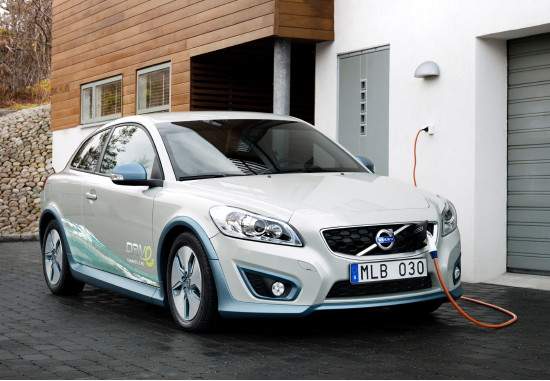
Volvo C30 electric concept, 2010 Detroit Auto Show
You may not recognize the EnerDel name, but they are a subsidiary of Ener1, the company that has been doing business with Th!ink. EnerDel’s role is to provide the large format, lithium-ion battery packs for the new Volvo C30 EV. With this 24-kilowatt hour battery technology, the C30 EV is able to reach top speeds of 130 km (about 81 mph) and is expected to be able to travel 120 to 150 km (75-90 miles). No word on how soon the Volvo C30 EV would arrive in the U.S., even with the U.S. technology connection. We do know that Volvo intends to start with 50 of the EVs for European distribution.
In addition to the C30 EV, Volvo also plans to have its PHEV model rolled out to market in 2012. Again, that is for Europe only, but we expect if it is successful that it would make the leap across the pond in fairly short order. The PHEV is said to charge in four to six, which is inline with the plans released by other competitors. Lennart Stegland, Director of Volvo’s Special Vehicles, said, “By 2015, there will be clear electric vehicle market in Europe. By 2020, it develops into interesting levels.”
Bottom line—Volvo may not have jumped into the hybrid market, but that wasn’t because they were behind; instead the company has a calculated plan to focus on plug-in hybrids and all-electric vehicles.
Be sure to check out how the Volvo C30 EV could have solved the range fade problems other EVs face in cold weather over at CollegeCarGuide.com. Then read up on how the Corolla and 7 other models are stopping sales and production temporarily.
[Source: CleanTech]












